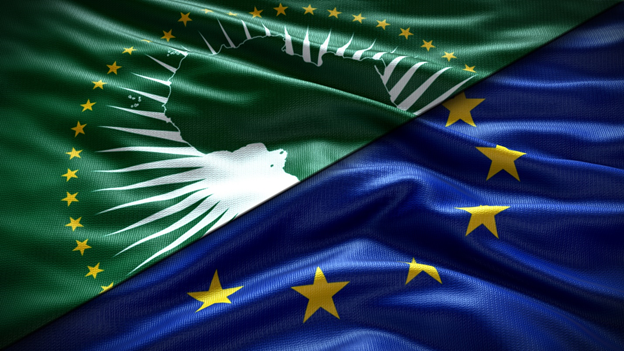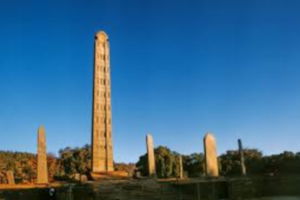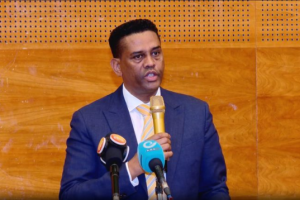
Africa is one of the continents with a prosperous future. In the past years, the rest of the world has wanted to create a strong bond with the youthful continent to build a better future. Countries and blocs have been showing their utmost interest in forming a partnership with Africa on an equal basis as the latter push for an increased stake in global matters.
The European Union (EU) has been one of the many partners looking to cement relations with Africa on an equal basis while trying to play a positive role in the continent. Being the major financial supporter of development assistance of the African Union (AU), the EU is also ready to forge equal partnerships and elevated ties with Africa which has a vast and young generation.
During an exclusive stay with The Ethiopian Herald, Ambassador Javier Nino Perez, Head of the Delegation of the European Union to the African Union, talked about the partnership between the two blocs and the circumstances surrounding their cooperation.
The Ambassador stated that the relations between the two partners have been ‘a partnership of equals’. “The partnership is a two-way street that the two partners listen, learn and respect to each other and build together.”
The two blocs are working and cooperating. They are working at political, policy and technical levels. In these three levels, every single initiative the EU takes is carefully coordinated between the two parts.
EU is very careful to discuss any initiative with its African counterpart. “We have a ‘Global Gateways’ strategy. This is a package of 150 billion Euros that can be mobilized to promote investments in Africa,” said the Ambassador adding that every investment is being discussed with the country or the region where the investment is taking place. It is important to understand here, as to Javier, is without the consent of the country or the region, the EU cannot invest in any given nation.
“We are following African lead and African initiatives. We are supporting the continental free trade area, the African electricity single market, African digital alliance. All the initiatives are encapsulated in the 2063 AU strategic plan. We add up ourselves with the priorities of Africans. Based on Global Gateway investment, we will carefully adapt to the strategies and priorities of Africa as established in the 2063 vision,” the Ambassador noted.
The Ambassador recalled that the European bloc has strongly supported AU’s accession to the G20. It was even engaged in the dialogue with non-European G20 members supporting the African bid. Later, the continent was admitted to the club of 20. This is an example to follow to reform other multilateral institutions like the UNSC.
“We are extremely pleased that AU will sit together with its sister organizations. This reflects the logic of having Africa more meaningfully represented in the international forum,” said the Ambassador.
Accordingly, for the UNSC, as to the Ambassador, to be reformed, it necessitates the consent of the five permanent members where four of which are not European nations. “What Africa needs to do is to engage in a dialogue with those five permanent states and with the rest of international communities to reform the security bloc,” he said.
Besides, the Ambassador elaborated that some of the EU member states acknowledged the ways of the colonial path and their mistakes in the past. Most of the states have also subscribed to and supported the principles of the Durban Declaration that talks about slavery and the slave trade. Those member states have acknowledged the negative impact of slavery and the slave trade as a crime to humanity. “We are fully aware of the past, but our vision is to look at the future. Africans have come a long way in terms of social and economic development. What the EU wants is to help Africans continue to develop economically and socially, and improve its governance.”
By the same token, the ambassador spoke about refugees. And he said many of the European countries consider migration as a positive development. “Europe is a continent that is ageing that necessitates young people, and Africa is the youngest continent.”
The two blocs are working through a process that builds on integration, protection, settlement and development. “We work on not just migrants coming to Europe; we are trying to work on the root causes that lead many Africans to leave their countries. We want to create conditions that will enable the majority of Africans to stay in their countries. That is what we all want,” the Ambassador elaborated.
“Mobility is a positive development. We are aware that there are a lot of misperceptions and misinformation about the impact of migration. Some statistics signal that there is no link between high levels of migrants with insecurity; rather figures show the positive impact of migrants coming to Europe.”
Discussing the partnership, he said that the EU is the largest provider of humanitarian assistance in the world and Africa. “We have recently approved a 100 million Euros package to deal with the situation in Sudan. We are planning together with Africa to be much more ambitious in our strategic vision.”
The two blocs, as to him, have been traditionally working on development cooperation and humanitarian assistance. But, we want to bring this to a higher and more sophisticated level through the Global Gateway project. This is basically on the major key areas that are considered priorities by Africa and working together on transport and infrastructure, digital infrastructure, energy, health, education, and the environment.
“In the digital transformation of Africa, we want to work on digitalizing the development of rural areas coupled with increasing the internet speed of data. We want to use digital ways to work on accessing public services, health and education.”
Related to health, the EU wants to increase the capacity of Africa to produce vaccines and medicine, health security, quality of health services, and decrease the inequality in access to services. We are launching significant investment to increase the capacity of vaccine production through a project ‘MAV+’ with four African countries: Ghana, Senegal, South Africa, and Rwanda to increase the vaccine production. It is more than one billion Euros investment. EU also wanted to help Africa on the environment and renewable energy, the Ambassador elucidated.
In addition, the EU is supporting initiatives by Africa to establish a single market on aviation and transport, and a single electricity market hoping to help 600 million Africans who do not have access to electricity, adding, “It is taking our work to a different level to a more strategic one under African ownership and leadership,” noted the ambassador.
Europe is the largest development and humanitarian assistance, and it is also the largest investing and trading partner with Africa. African initiatives backed by the EU are very crucial to African development. “We are willing to empower Africa by taking care of its development and focus on long-term sustainable and high-quality engagement that could bring peace, security, and prosperity,” voiced the Ambassador.
Finally, the Ambassador said, “I am very optimistic about the future of Africa. The continent has an articulated vision in 2063. We are confident that the EU and Africa working together can make a difference when it comes to prosperity and stability always under the leadership and ownership of Africa.”
BY DANIEL ALEMAYEHU
THE ETHIOPIAN HERALD TUESDAY 5 MARCH 2024





